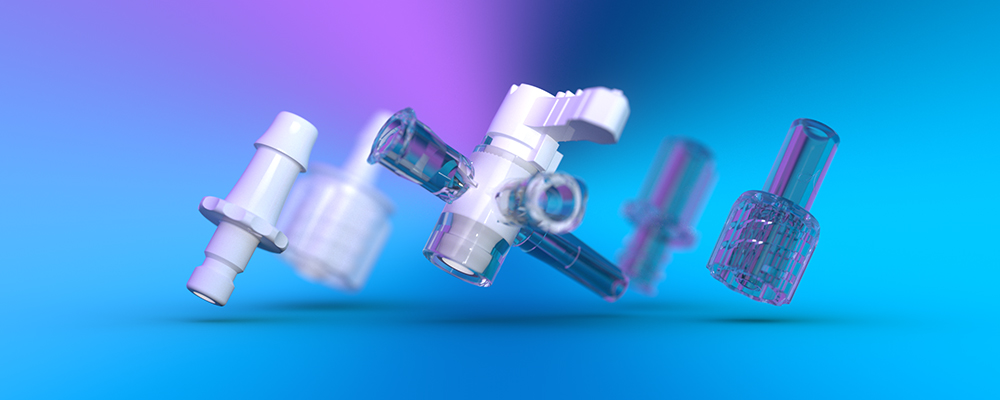What is ISO 80369?
Hospitals and other healthcare facilities depend on a variety of catheters, tubing and syringes to deliver medications and other substances to patients through vascular, enteral, respiratory, epidural and intrathecal delivery systems. These delivery systems frequently employ fittings called luer connectors to link various system components. Unfortunately, because luer connectors are ubiquitous, easy-to-use, and compatible between different delivery systems, end users can inadvertently connect the incorrect systems together. These misconnections can cause medication or other fluids to be delivered through the wrong route, resulting in serious patient injuries and even death. In an effort to reduce the occurrence of these misconnections, the FDA is in collaboration with the International Organization for Standardization (ISO) and the Association for the Advancement of Medical Instrumentation (AAMI) to develop standards for the noninterconnectability of small bore medical connectors. A joint working group established by the International Organization for Standardization (ISO) and the International Electrotechnical Commission (IEC) leads this effort to develop a series of standards for incompatible connectors.
Nordson MEDICAL is well positioned to help you with your tubing connection needs. Our parts are designed, tested, qualified, and documented to be compliant with these new standards. Because Nordson MEDICAL's Value Plastics product line team has participated on the committees developing these standards, you can be assured of a full understanding of the testing and compliance requirements.
Our standard product base has hundreds of different types of luers that can be customized to achieve ISO 80369-7 compliance. Contact us to schedule an appointment with our knowledgeable staff.
ISO 80369-1
General Requirements
The ISO 80369-1 standard provides general requirements to prevent misconnections between small-bore connectors used in various medical devices.
ISO 80369-2
Breathing Systems and Driving Gases
Respiratory applications include connectors designed for low flow, such as flowmeters, nebulizers, nasal cannulae, and ventilators. This application aims to interact with the human body's airways in various modalities.
ISO 80369-3
Enteral
Enteral and gastric applications drive the requirements for these connectors, which have a larger bore than standard luers. The goal of this application is to deliver nutrition directly to the patient when normal eating is not possible.
- ENTFTC-VP1
Tethered Cap, Fits Enteral Male Connector, Animal-Free Polyethylene
- ENTM230-6005
Enteral Male Connector with Barb for 1/8" (3.2 mm) ID Tubing, Animal-Free Polypropylene
ISO 80369-4
Urinary (Urethral)
This section of ISO 80369 is yet to be published (as of 2023), but will aim to define the connectors associated with urinary and urethral devices with the purpose of draining urine from the bladder.
ISO 80369-5
Limb Cuff and Blood Pressure
Limb cuff inflation includes blood pressure monitoring and tourniquets, inflating devices external to the human body. These connectors are characterized by smaller bores to not misconnect with other devices that interact with the body.
- BPM013-1
Blood Pressure Monitor Bayonet Connector to 500 Series Barb, 80369-5 Compliant, 1/8" (3.2 mm) ID Tubing
- BPM240-1
Blood Pressure Monitor Bayonet Connector to 200 Series Barb, 80369-5 Compliant, 5/32" (4.0 mm) ID Tubing
- BPM025-1
Blood Pressure Monitor Bayonet Connector to 500 Series Barb, 80369-5 Compliant, 5/32" (4.0 mm) ID Tubing
- BPM035-1
Blood Pressure Monitor Bayonet Connector to 500 Series Barb, 80369-5 Compliant, 3/16" (4.8 mm) ID Tubing
- BPMB230-1
Blood Pressure Monitor Bayonet Panel Mount Connector to 200 Series Barb, 80369-5 Compliant, 1/4-28 UNF Thread, 1/8" (3.2 mm) ID Tubing
ISO 80369-6
Neuraxial
Neuraxial applications are designed around anesthesia and spinal fluid procedures. This includes intrathecal injections, epidural infusions, nerve blocks, peripheral infusions, and cerebro-spinal fluid drainage.
- NEFC-50
Neuraxial Female Cap, Fits Neuraxial Male Connector, Clear Acrylic
- NEFC-8012
Neuraxial Female Cap, Fits Neuraxial Male Connector, White ABS
- NEFCV-50
Neuraxial Female Vented Cap, Fits Neuraxial Male Connector, Clear Acrylic
- NEFCV-9010
Neuraxial Female Vented Cap, Fits Neuraxial Male Connector, Polycarbonate
- NEFE21-9010
Neuraxial Female Connector, 2.1 mm Tubing Bond-In Pocket, Polycarbonate
- NEFE31-9010
Neuraxial Female Connector, 3.1 mm Tubing Bond-In Pocket, Polycarbonate
- NEME31-9010
Neuraxial Male Connector, 2.1 mm Tubing, Bond-In Pocket, Polycarbonate
- NEMP-50
Neuraxial Male Plug, Fits Neuraxial Female Connector, Clear Acrylic
ISO 80369-7
Intravascular and Hypodermic
Intended for intravascular (I.V.) and hypodermic applications, the publication supersedes the legacy ISO 594 standard, which defined tapered luer connectors historically.
- FCVFFM-008
Stopcock, 3-way, Female Luer to Female Luer to Male Luer, ISO 80369-7 Compliant
- FCVFFMR-008
Stopcock, 3 Way, 80369-7 Female Luer to Female Luer to Male Luer with Luer Lock Ring
- FCVHPFFMR-008
Stopcock, 3-way, 80369-7 Compliant, Female Luer to Female Luer to Male Luer with Luer Lock Ring, High Pressure
- FCVFFM-030
Stopcock, 3-way, 80369-7 Compliant, Female Luer to Female Luer to 0.110 Bond Port
- FCVFM-001
Stopcock, 1-way, Female Luer to Male Luer, ISO 80369-7 Compliant, Natural HDPE Diverter, Radiation Stable PC Housing
- FCVHPFMR-001
Stopcock, 1-way, 80369-7 Compliant, Female Luer to Male Luer with Luer Lock Ring, High Pressure
- FCVFFM-AN017
Stopcock, 3-way, Female Luer to Female Luer to Bondable Socket, Annealed Body
- FCVFMR-001
Stopcock, 1 Way, 80369-7 Female Luer to Male Luer with Luer Lock Ring
- MTLLPV-6005
ISO 80369-7 Compliant Male Luer Integral Lock Ring Plug, Closed at Luer Tip, Animal-Free Natural Polypropylene

